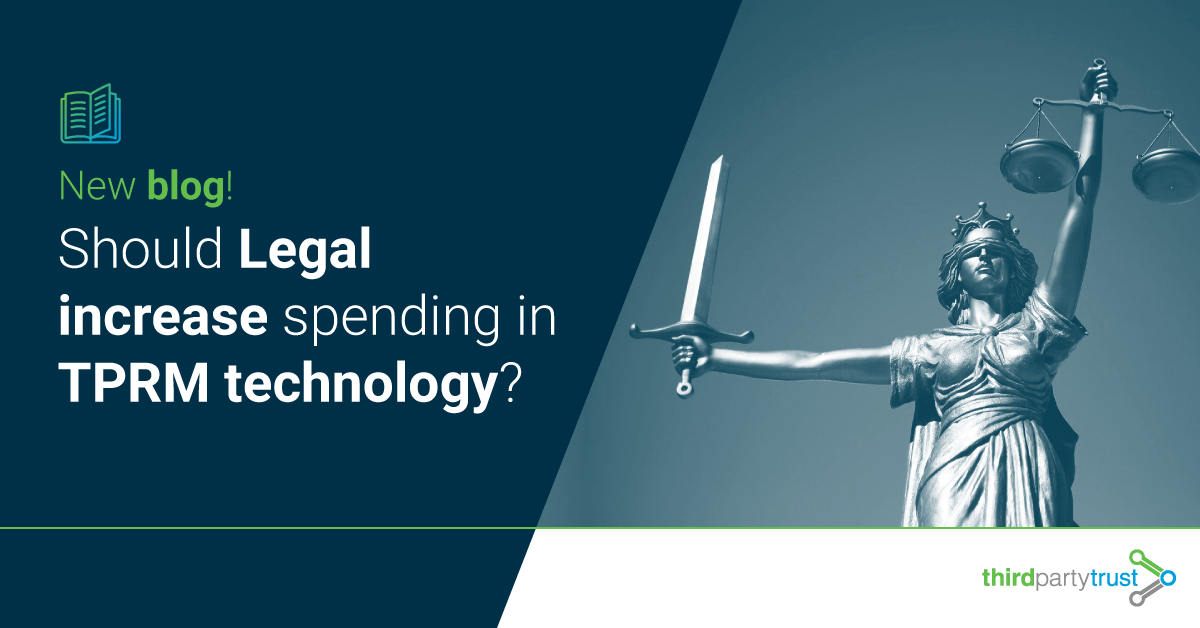Should Legal increase spending in third-party risk management technology?
Gartner predicts that by 2023, organizational spending on third-party risk management technology within the Legal industry will increase by 50%, in order to support due diligence and monitoring. This comes from a list of 4 Legal tech trends for 2020 that the analyst firm has recently published. We’ll dive into one in particular, related to an increasing coordination for TPRM.
“Companies must invest in legal technology more aggressively — but more importantly, they must invest more effectively,” said Zack Hutto, Director, Advisory, Gartner. “Otherwise, legal and compliance functions will remain a drag on productivity and responsiveness.”
So why should Legal increase spending in third-party risk management technology? To answer that, let’s think about what that technology can actually do for the industry.
The role of Legal and technology in TPRM
The need for more and better investments is a key insight when we think about the role of Legal within third-party risk management (TPRM). They strive for greater efficiency, visibility into risks, and strong data control practices.
They write language into any new contract to make sure standards and controls are upheld through the life of the third-party relationship, in order to prevent cyber, legal, financial and reputation risk. They also go back to existing third-parties and amend their contracts to make sure the requirements are met, even if that language wasn’t in the initial contract.
In today’s fast-paced world, with digital business transformation amplifying the risks associated with third-parties, Legal’s involvement can’t afford to slow things down. That’s when technology kicks in, hopefully not just as a trend, but as a reality for 2020.

What can technology do for Legal?
Legal and compliance leaders can benefit from solutions designed to help them in their key mandates to manage risk and facilitate the business’s digital transformation. Not all do yet, but there’s certainly room for improvement with innovations in automation, analytics, artificial intelligence and other emerging technologies.
If Gartner predictions become reality and Legal firms increase their spending in TPRM solutions, they’ll get to streamline their process while meeting client compliance requirements at a greater success rate.
Our ThirdPartyTrust platform is one of the tools that can certainly benefit the Legal industry, with the ability to:
- Connect with a new third-party and instantly see all their relevant and current security data
- Message third-parties directly from within the platform to communicate effortlessly regarding security assessments and other documentation
- Review third-party certifications, such as SOC, HIPAA, HITRUST, and PCI
- Review completed industry-specific forms such as SIG LITE and CIS 20, LS-ISAO questionairre
- Assess third-party insurance policies including cyber, E&O, and general liability
- Access additional intelligence on the third-party’s digital footprint, breach information and financial risk
On top of any new technology, Gartner predicts that by 2023, 33% of corporate legal departments will have a dedicated legal technology expert to support the increasing automation of core in-house workflows. This would be a key role for legal departments to improve performance, combining a good understanding of both legal service and technology.
As Gartner put it: moving forward, Legal firms must pull together the ownership structure for the TPRM program. This, in turn, will enable organizations to have a unified view of risks.
To learn how our ThirdPartyTrust platform can help improve your TPRM strategy, request a demo now:




